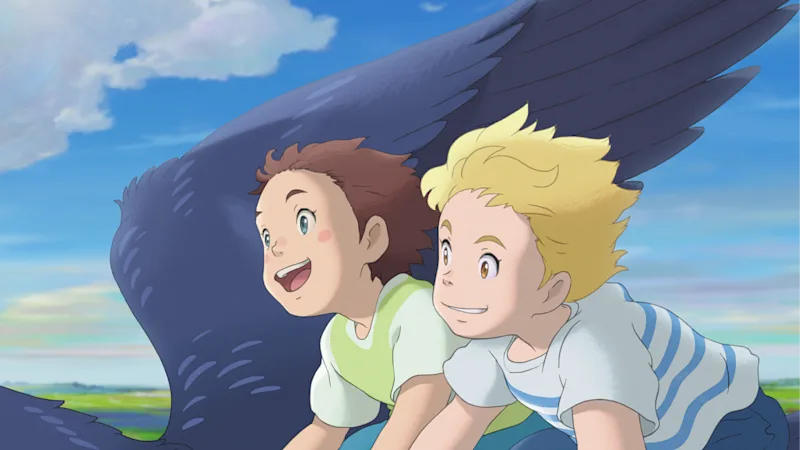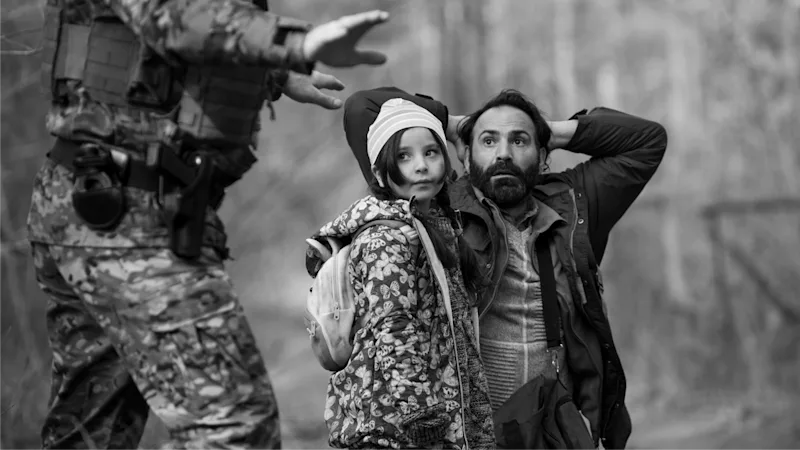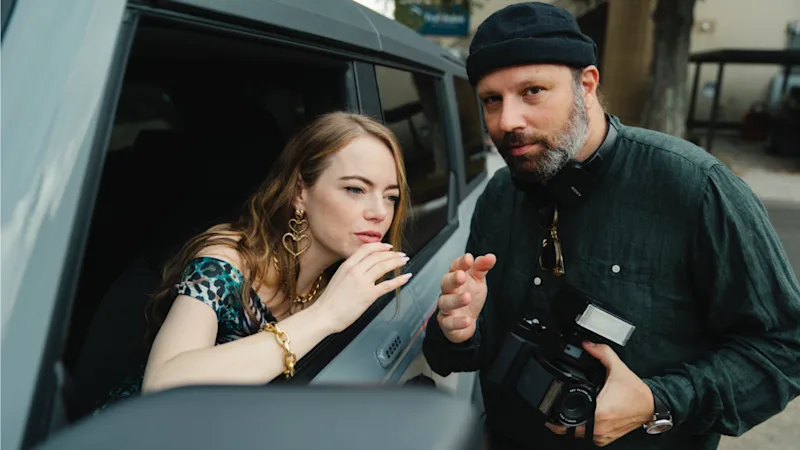Attorney-turned-filmmaker Dawn Porter did not need much convincing to sign on to her latest documentary, The Lady Bird Diaries. After directing and producing Netflix's four-part docuseries Bobby Kennedy for President and the 2020 documentary John Lewis: Good Trouble, Porter saw an opportunity to explore the 1960s through a new lens: That of former First Lady Claudia "Lady Bird" Johnson.
"Lady Bird gave me a third window into the same time period, but from a very different vantage point — that of a woman," Porter explains. "I was really interested to hear her take on this period in history."
Following the assassination of President John F. Kennedy on Nov. 22, 1963, Lady Bird Johnson was unexpectedly thrust into the limelight as her husband began his tenure in the White House. "The first thing that struck me was that Lady Bird and Lyndon Johnson had the most unique vantage point of President Kennedy's assassination," Porter says. "They were in the car right behind him. To have this very familiar, tragic piece of history, and to think about it from that perspective was really intriguing to me."
Mere days after the assassination — and with almost eerie prescience of the tumultuous years ahead – Lady Bird began recording her observations in real-time. Over the course of the next five years, the effort would yield 123 hours of audio recordings, offering a singular perspective on what she saw, heard, and thought during a period of national political and social upheaval.
These priceless tapes are the foundation of Porter's all-archival documentary film, The Lady Bird Diaries, a unique glimpse into the life of a First Lady who was ahead of her time. As the director tells A.frame, "I hope what people see in the film is how involved she was with so many critical decisions."
A.frame: What surprised you the most after going through Lady Bird's tapes?
What was surprising and delightful and so much fun to work with, was how Lady Bird was so observant and detailed in her diary. For example, she would list the journalists who were present at certain speeches or events. That became really critical for us, because we quickly found out that she was often omitted in the description of the archival materials.
When we first searched for "Lady Bird Johnson," very little came back as archival assets. That seemed very odd to us, because she was the first lady of the United States during a very visual time in history. When we searched for "Mrs. Johnson," a little bit more came back. Then, we realized we needed to use her diaries as a guide to where there might be footage of her. We were literally searching for the archives to match her diaries!
So, most of the clues you had to rely on to cross-reference the archival materials were in fact her own words?
Exactly. To me, that is such a telling story about how women were treated — or maybe are still treated — when they're married to very powerful people. She wasn't even listed as a participant in some of the archival material. But as you see, we were able to make an entire film about her. The people cataloging the archives did not seem to be interested in the woman, but we were. The people who control the history didn't think it was worth mentioning that she was in the footage. All of this material was there in plain sight if anybody ever asked. Unfortunately, not many people did.
How were you able to gain access to all these tapes?
The audio diaries are public and available at the Johnson Library, which was a wonderful partner for us. They were thrilled that we were looking into her tapes, and they also offered other materials. The little bit of filming that we did was done there — we filmed some of the wildflowers and her dresses at the library. It was really great to work with such a rich history and to have their experts in the Johnsons' history. I think they were just delighted that other people were as taken with this story as they are.
Once you had her diaries, how long did it take you to piece together the film?
About a year and a half. I knew from the beginning that I wanted it to be all archival. But the challenge was if we didn't have archival material about a certain story or conversation, we couldn't include them in the film. There's a great story about Lady Bird speaking to a group of female students at a home economics class in a low-income area public school. She told them to get their own jobs and to have their own money, but we didn't have any pictures of it. In other instances, we added some hand-drawn animations to fill in the gaps, like the phone call between Lady Bird and her husband after his first televised press conference. We did a lot of research when that phone call would have taken place. Would Jackie Kennedy still be wearing black by then? Would she wear a veil? So, even with the things that we created, we tried to have them be historically based.
What were some of the diary entries that stood out most to you, personally?
One of the big surprises was the Eartha Kitt story. Lady Bird invited women into the White House for her Women Doers' Luncheon, to get to know women who she thought were doing interesting things. One of them was the actress Eartha Kitt, who confronted President Johnson about the [Vietnam] war and talked about poverty, and both Johnsons were not happy about that. It was all over the newspapers that Eartha Kitt had gotten into a tussle with the Johnsons. According to historians, the Johnsons were able to avoid direct criticism about the war in Vietnam and about what was happening in the country, and then Eartha Kitt brought those questions and criticisms directly to the White House, which didn't happen very often. So, it was a really important moment.

Despite how keen and detailed Lady Bird’s observations were and how involved she was during those years in the White House, as you mentioned, not much was known about her until now.
If people knew her at all, she was known as a woman who planted flowers. But she clearly did so much more than that! In the film, you see her critiquing her husband on his speeches, giving him pointers. She was also very interested in the environment — more than 300 environmental bills were signed during the Johnson presidency, and a lot of them were based on her work. Even though she called it "beautification," she was really thinking about the environment and how cities should be livable, especially for the poor. There's so often a devaluation of women's work, or even the definition of what women's work is. But I think she was really a partner in that presidency, and that's something people should be reminded of.
Ultimately, the decision making was with the President, of course, but I think he really valued her advice. Both of their daughters have attended many screenings with us and both said that their parents were each other's best advisors. [Lynda Bird Johnson Robb] said her father thought that Lady Bird was the most intelligent person that he knew, so I think that he recognized her role long before many others did.
What was it like showing the film to the Johnson's daughters for the first time, and how did they react?
I would say they're really thrilled, actually. Lady Bird had a stroke towards the end of her life, so she couldn't speak. Luci [Baines Johnson], in particular, said that it was so meaningful for the family to be able to hear their mother, grandmother, great grandmother, in her own voice. She said, "Thank you for giving my mother the last word." I really loved that.
After all of your time spent in the world of Lady Bird Johnson, what do you find most impressive about her?
I really admire her because she just did the work; she didn't look for a lot of credit. She was satisfied with a job well done. Thinking about all that she has contributed to the country, I'm so grateful to her. Not only did she make her recordings available to the public, she also made LBJ's recordings available as well. She hoped that historians and documentarians would use these materials, which is how we have this insider's look into the White House, politics, and governing from a perspective that we would never otherwise have.
By Su Fang Tham
RELATED CONTENT:
How 'Going to Mars' Filmmakers — Finally — Took Nikki Giovanni on a Space Odyssey (Exclusive)
'Joan Baez I Am A Noise': How Three Women Captured the Life and Legacy of an Icon (Exclusive)







